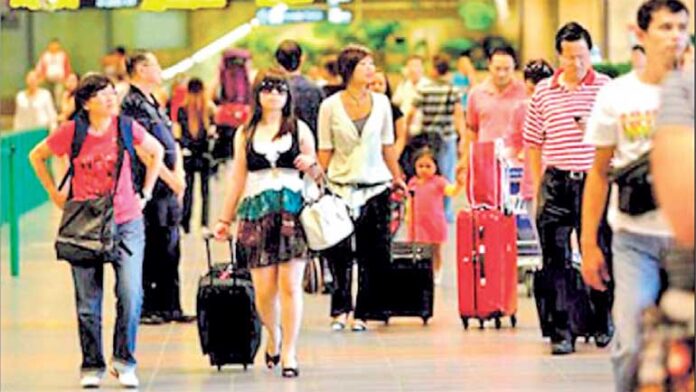By: Staff Writer
October 06, Colombo (LNW): Sri Lanka’s post-crisis tourism revival is beginning to find new direction through the rise of boutique hotels, small, design-focused properties that promise personalised experiences rooted in local culture and community. The recent SME Conclave Boutique Hotel Development Workshop, jointly organised by the Rotary Club of Colombo East and Boutiques in Sri Lanka, offered a revealing glimpse into how this niche can help reposition the country’s tourism identity and generate high-value returns.
The event brought together boutique hotel operators, SME suppliers, and tourism innovators to explore strategies ranging from digital transformation and wellness tourism to financing and sustainability. Discussions centred on how smaller, independent establishments can compete in a market dominated by large hotel chains and international brands.
According to the Sri Lanka Tourism Development Authority (SLTDA), the country currently has over 4,500 registered accommodation establishments, though only 169 are officially classified as tourist hotels. Within this diverse mix, boutique hotels form a fast-emerging category a space that blends luxury and authenticity, catering to travellers seeking unique, place-based experiences. SLTDA data also shows 15 boutique hotels under construction, underscoring investor interest despite macroeconomic uncertainty.
Industry analysts estimate that Sri Lanka’s hospitality market will reach USD 702 million by 2030, up from USD 503 million in 2025, with independent and boutique hotels accounting for over 60 percent of market share. This shift reflects a broader global trend where travellers prefer personalised stays over standardized offerings, a change accelerated by post-pandemic preferences for wellness, privacy, and local engagement.
Speakers at the Colombo workshop highlighted that wellness integration and medical tourism could become major growth drivers. With rising global demand for health-conscious travel, boutique hotels are ideally positioned to offer retreats centred on rejuvenation and preventive care. Meanwhile, sessions on artificial intelligence and digital tools showcased how technology can transform guest engagement, streamline operations, and open new marketing channels for small operators that struggle to reach international audiences.
Yet challenges remain. Access to capital continues to be a major constraint, with many boutique hoteliers unable to secure long-term financing for upgrades or expansion. Digital adoption also lags, particularly among provincial properties lacking trained staff and marketing expertise. The workshop’s focus on AI-based tools and secure digital payment solutions was therefore timely, as cashless transactions and online visibility increasingly shape destination competitiveness.
Experts note that boutique hotels can deliver far more than just luxury. Their smaller scale and community linkages allow them to integrate local supply chains, promote regional crafts, and showcase Sri Lanka’s cultural diversity advantages that larger resorts often overlook. Strengthening these linkages could make boutique hotels a model for inclusive tourism, blending profitability with social sustainability.
However, to realise this potential, policymakers must recognise the sector’s strategic value. Tailored financing mechanisms, tax incentives, and targeted promotion campaigns could help boutique operators expand beyond niche status. Equally vital is sustained capacity building training owners and staff in marketing, digital transformation, and wellness standards that align with global expectations.
The Boutique Hotel Development Workshop was more than a networking event; it signalled an industry awakening. By empowering small operators with knowledge, tools, and partnerships, it highlighted how Sri Lanka’s boutique tourism can evolve from a scattered collection of ventures into a cohesive, high-value export segment. If nurtured through smart policy and sustained collaboration, boutique hotels could indeed become a defining force in Sri Lanka’s tourism renaissance — one that combines authenticity, innovation, and resilience.
